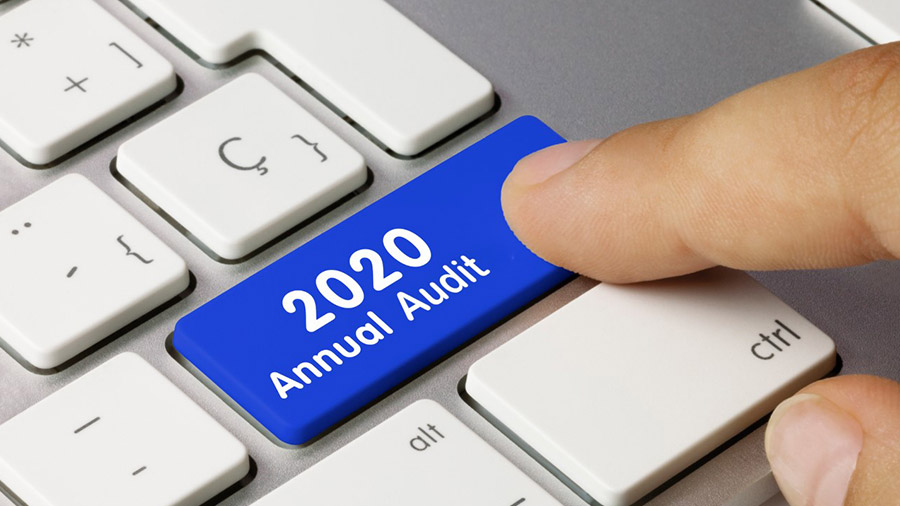A Users Guide to 2020 Annual Audit and Compliance in China, Hong Kong, and ASEAN

Op/Ed by Chris Devonshire-Ellis
It is now time to prepare for annual audits for your businesses 2020 accounts in Asia. This year’s audits may be more complex than before – as many Asian countries introduced tax breaks, welfare subsidiaries for employees, delayed and reduced payments on certain items such as VAT and GST – all designed to lessen the operating burden on companies during the COVID-19 pandemic. This means that extra attention to detail on the ground needs to be exercised to ensure your business will not be charged more in taxes than it should be. This is especially important at the planning level, where internal accountants familiar with normal practices may not have stayed up to date with the range of new tax breaks, incentives, and cost reductions introduced during 2020. While annual audits in India are not due until Q2 as it follows a different fiscal year, some India pre-audit financials may need to be catered for in other holding company accounts if the India entity ownership is external from the country.
Many foreign investors in Asia now have more than one company operating in the region; these all need to be audited in their respective jurisdictions, then additionally consolidated into the pertinent holding company accounts as well as into group accounts elsewhere at head office level.
At Dezan Shira & Associates we have been providing audit and compliance support services to foreign investors in Asia since 1992 and have 28 offices throughout the region. We are fully versed with local audit preparation and report filing as well as providing consolidation support. For this year, we have prepared a library of 2020 Audit and Compliance articles for foreign investors throughout the region to refer to for assistance. Asian audit assistance and advisory can be obtained from us at asia@dezshira.com.
Please see below as follows:
Annual Audit and Compliance in China
In this issue of China Briefing Magazine, we walk foreign businesses through the annual audit and compliance process from start to finish. We begin by exploring the significance of annual audit on FIEs and strategies on how to make the most out of the annual audit. Then, we offer a comprehensive step-by-step guide to completing the annual compliance process and highlight the changes in the past year. Finally, we provide a comprehensive introduction to the new China Accounting Standards that will affect most businesses, starting January 1, 2021.
Consolidated Audits for Holding Companies in Hong Kong
A consolidated financial statement provides a clear and unified picture of the company’s financial status. This is especially important for companies operating across multiple countries, requiring compliance with tax and accounting laws in different jurisdictions. Even if the company is exempted from producing a consolidated financial statement – shareholders often appreciate the audit being undertaken as it strengthens the company’s position with revenue authorities and banking institutions.
Audit and Compliance in Brunei
Brunei adopts two types of accounting standards, the IFRS, which is issued by the IASB, and the Brunei Darussalam Accounting Standards (BDAS). Private and public companies in Brunei must have their accounts audited once every year, although private companies are not required to submit their accounts to the Registry of Companies and Business Names.
Companies should hold their annual general meetings (AGM) once every year and within 18 months of incorporation.
Audit and Compliance in Cambodia: A Guide for Foreign Investors
Resident taxpayers are subject to tax on their worldwide income while non-resident taxpayers are taxed on their Cambodia-sourced income only.
Audit and Compliance in Indonesia
Foreign investors should understand the Company Law, which sets outs the requirements for audit compliance and preparing financial statements. Other important and relevant laws are the Investment Law and Capital Markets Law. If a company’s fiscal year differs from the calendar year, then their deadline for reporting and paying corporate income tax is four months after the end of their fiscal year.
Audit and Compliance in Laos
Mandatory audits are required for companies with total assets of more than 50 billion kip (US$5.4 million). The Enterprise law and the Law on Independent Audit are the main laws that establish audit requirements in Laos. The Ministry of Finance is responsible for setting the auditing standards, which is the International Standards on Auditing (ISA).
Audit and Compliance in Malaysia
All companies incorporated in Malaysia must have their accounts audited by a Ministry of Finance approved auditor as mandated by the Companies Act of 2016. Most companies in the country choose to have their fiscal period end either on the last day of the year or on the last day of a quarter. Malaysia operates a self-assessment tax system, and tax returns must be filed within seven months of the company’s year-end.
Audit and Compliance in Myanmar
Myanmar operates two assessment systems: the self-assessment system (SAS) and the official assessment system (OAS). The Myanmar Companies Law of 2017 and Myanmar Accountancy Council Law are the main legislation that governs audit and compliance requirements for businesses in the country. Companies incorporated in Myanmar must maintain proper books of accounts as well as appoint an auditor by the company’s directors.
Audit and Compliance in the Philippines
The Philippines uses a self-assessment tax system, and the accounting period consists of 12 months, normally ending on December 31. Companies whose gross annual earnings exceed PHP3 million (US$61,760) are required to have their accounts audited. All companies must submit their financial statements accompanied by an auditor’s report issued by an independent CPA.
Audit and Compliance in Singapore
Singapore makes it obligatory for registered businesses to hold annual general meetings, file annual financial statements, and to be officially audited. Businesses or business groups that are classified as ‘small’ are exempted from official audits. Foreign investors should use the services of registered local advisors to ensure they stay compliant with the relevant regulations.
Audit and Compliance in Thailand: A Guide for Foreign Investors
All companies in Thailand must now prepare financial statements for their assigned 2020 accounting period to the Ministry of Commerce.
Audit and Compliance in Vietnam
Foreign-owned enterprises (FOEs) and representative offices (ROs) are obligated to have their annual statements audited. Investors should be aware that FOEs and ROs have a different audit and compliance requirements. The government aims to replace the Vietnamese Accounting Standards and adopt the International Financial Reporting Standards by 2025.
Related Reading
 Planning Your 2021 Investment Budget: Opportunities in China
Planning Your 2021 Investment Budget: Opportunities in China
 Planning Your 2021 Investment Budgets: Opportunities in ASEAN
Planning Your 2021 Investment Budgets: Opportunities in ASEAN
 Planning Your 2021 Budget: Opportunities in India
Planning Your 2021 Budget: Opportunities in India
About Us
China Briefing is written and produced by Dezan Shira & Associates. The practice assists foreign investors into China and has done so since 1992 through offices in Beijing, Tianjin, Dalian, Qingdao, Shanghai, Hangzhou, Ningbo, Suzhou, Guangzhou, Dongguan, Zhongshan, Shenzhen, and Hong Kong. Please contact the firm for assistance in China at china@dezshira.com.
We also maintain offices assisting foreign investors in Vietnam, Indonesia, Singapore, The Philippines, Malaysia, Thailand, United States, and Italy, in addition to our practices in India and Russia and our trade research facilities along the Belt & Road Initiative.
- Previous Article Calendario ufficiale delle festività cinesi del 2021
- Next Article China Expands Encouraged Catalogue, Improves Foreign Investor Access









